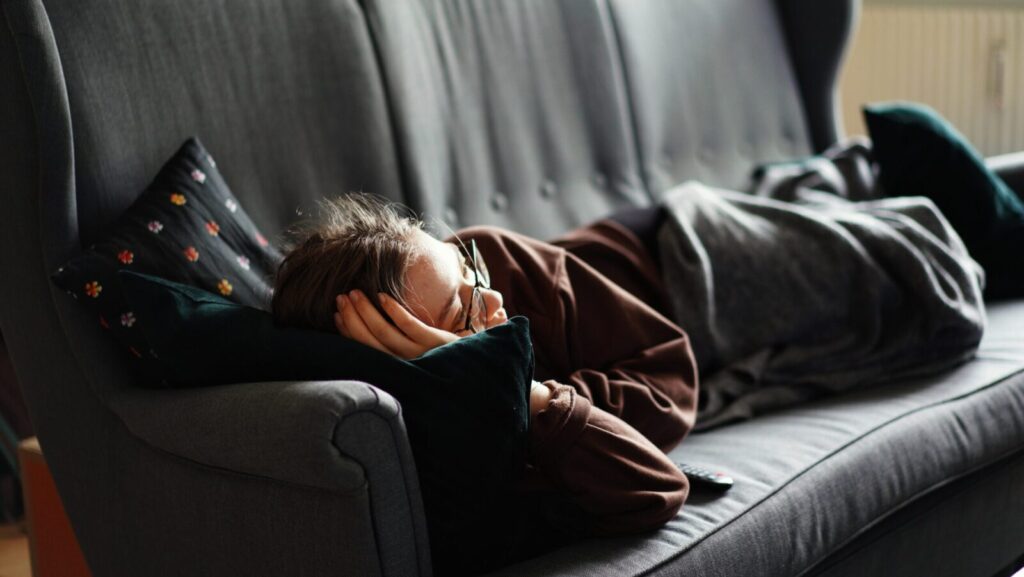Teguan Harris
‘Rotten’ or ‘feral’ girls are primarily found on TikTok, spending days in bed in messy environments and nights in nightclubs. With influencers like Madeline Argy leading the trend, these girls are reaping the rewards for their unhygienic behaviour.
So, you think you’re a ‘Rotten Girl’?
The ‘rotten girl’ trend has become popular on TikTok because it promotes untidiness and bed rotting as a part of a glamorous lifestyle. The term – designed to be the opposite of the ultra-healthy ‘that girl‘ – is associated with videos that feature untidy bedrooms or poor hygiene.
“Social media romanticises depression and ‘rotting’ if you fit the typical beauty standards”
Many on social media have linked this rising trend with another called quiet quitting, often associated with young people. Others perceive bed-rotting or quiet quitting as yet another example of Gen-Z-sanctioned laziness. However, the trend has also been viewed positively, as it promotes a form of self-care.
Bed rotting? Or mental illness?
Some in the medical field even go as far as to label the rotten girl trend as a symptom of depression or other mental health conditions, especially if these persist for a long time. Following this perception and the recent evolution of mental health discourse, user-based media inherently portrays depression as something beautiful. Though well-intentioned, this runs the risk of glamorising mental illness in social media trends, which would be dismissive of the harsh reality of depression.
The harsh, all-too-common reality of depression is that its sufferers often aren’t able to take care of themselves — this includes hygiene. Yet, on the other side of the phone screen, depression sufferers are often demonised for being unclean. It all depends on how they look doing it. Social media romanticises depression and ‘rotting’ if you fit the typical beauty standards, and only under these conditions.
What is pretty privilege?
‘Pretty privilege’ is the societal system through which conventionally attractive people are rewarded with certain advantages. They are more likely to receive preferential treatment, such as career opportunities or kindness from strangers. In addition, those with pretty privileges are often perceived as smarter, funnier, more pleasant, healthier, and more successful. These attributes provide them a significant advantage when making friends, seeking employment and through their daily interactions.
“Pretty privilege is inextricably linked to the ‘rotten girl’ trend”
Because of pretty privilege, if an individual, specifically a woman, does not reach this benchmark of attractiveness, she is, therefore, less human. A recent study conducted by the American National Library of Medicine supports this claim. It suggests that certain positive traits like attractiveness and intelligence are indicative of an equally positive social experience.
Pretty privilege is inextricably linked to the ‘rotten girl’ trend, as TikTok users are more forgiving towards attractive women. When a pretty girl is also a rotten girl, she’s ‘brave’ for documenting her mental health battles in a public forum. Those without pretty privilege, who post their messy rooms and unhygienic routines, are less likely to receive similar treatment.
Spoilt Rotten Girls
The rotten girl trend is only normalised for those with money. There is an unwritten rule that not every lifestyle should be shared online. If your bedroom is too small, and your skincare routine features too many drugstore products, you might just be poor and not ‘rotten’ after all.
“By participating in an online trend which glamorises mental illness, users are upholding unrealistic standards around mental health”
On the other hand, if you happen to live in a nice house and wear expensive clothes – then don’t worry so much – desirability is on your side. The ‘rotten girls’ who don’t quite meet the beauty standard whilst facing additional financial constraints are routinely bullied for failing to keep up appearances.
Social Media vs. Reality?
Although ‘pretty privilege’ plays a huge role in determining the kinds of responses users will receive when participating in online trends, those who publicise their ‘rotten’ lifestyles are no doubt opening themselves up to criticism.
Online comment sections are flooded with praise for how honest and relatable the TikTok platform has become. Yet, by participating in an online trend which glamorises mental illness, users are upholding unrealistic standards around mental health. If they were to act this way in their offline lives, the reaction might not be so positive.
Being conventionally attractive and wealthy and upholding the misguided belief that aesthetics come first can be damaging. Though it might be tempting to paint an aspirational portrait of mental illness, we must be careful to take an even-handed approach to each post under this trend. If not, we run the risk of spoiling social media for the majority of people.
READ NEXT:
-
WHAT’S MY INTERNET AESTHETIC? MORE IMPORTANTLY, WHO CARES?
-
THE ‘TIKTOKIFICATION’ OF OUR GENERATION
-
WOMEN LIKE PARTYING TOO! WHAT’S THE PROBLEM?
Photo by Adrian Swancar via Unsplash. No changes were made to this image. The image licence is found here.

